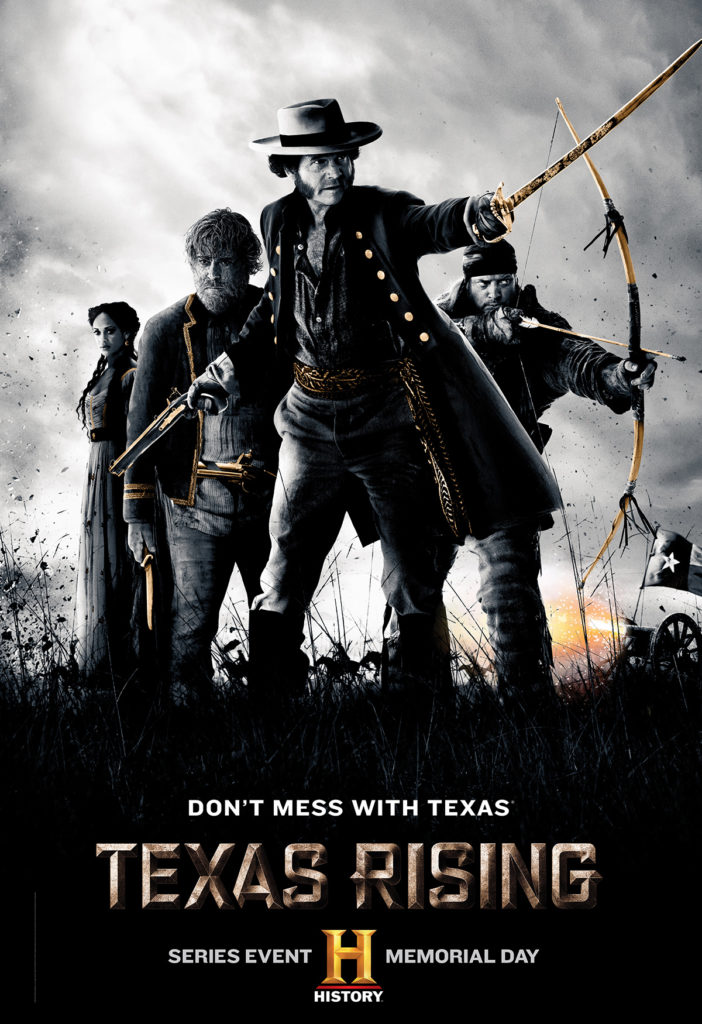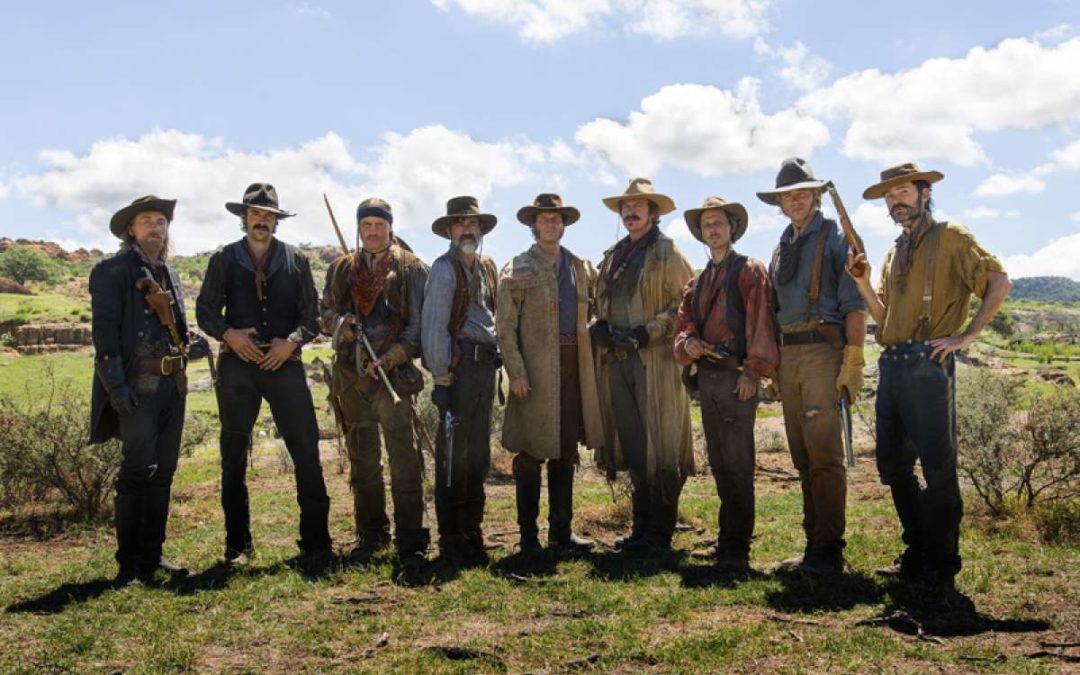Each Monday, I continue to share Western movie reviews as I go through the process of finishing post and releasing my 12 Westerns in 12 Months during 2020. I am watching these films not from an audience perspective but as a filmmaker, as a student of the genre.
Week 126: Texas Rising

I normally wouldn’t consider a limited series to be a “film” for my study of Westerns but Texas Rising is a bit different, mainly because every episode was directed by Roland Joffe, a filmmaker I’ve long admired for his late 80s and 90s work such as The Killing Fields and The Mission. With Joffe as the helm and Bill Paxton, one of my favorite actors, as the lead, I was excited to dive into this lengthy exploration of Texas history.
Unlike most films that tackle the Alamo story, this one takes place entirely after the battle. That focus is one of the project’s strongest elements, shining a light on history that many of us may not be aware of. Unlike the ending of Hancock’s 2004 Alamo, Houston’s revenge for his fallen Texans is not rushed and we get a thorough exploration of this fascinating and often complex time. But Texas Rising does have one thing in common with the Dennis Quaid-starring box office flop: it is a mixed bag of good and bad.
The good is Bill Paxton, who nails Houston and grounds his character. The good is Jeffrey Dean Morgan, who steals every scene as Deaf Smith, a character I’d like to explore in a film of my own. There’s lots of elements of this epic story that work okay most of the time: the rest of the rangers including against-type casting with Brendan Fraser, the portrayal of Santa Anna, and some of the action scenes are impressive.
However, the film really derails when it deviates from history and I don’t just say that as someone who prefers fact to fiction. When the writers and director veer away from the truth, it just doesn’t work as well. It’s weak. It’s full of plot holes. I did not like any of the Thomas Jane subplot. It felt completely unnecessary. And though I love Liotta’s wild character, the filmmakers fail to bring his story arch together in a meaningful and believable way.
The biggest flaws in the script come in the last couple episodes when things feel very rushed. I kept wondering if sequences were edited out of order because they made little sense. Houston’s emotional logic especially suffers as he goes from hero to drunk to president of Texas with barely any attention paid to explain the transition between those phases. Ultimately, it feels like the History Channel packed the story into too few episodes and put all their hope in a second season that never came. It’s a shame because if they’d focused more on what was right in front of them, this might have been the best film made about this time in American history.
Watched on Amazon Prime.


